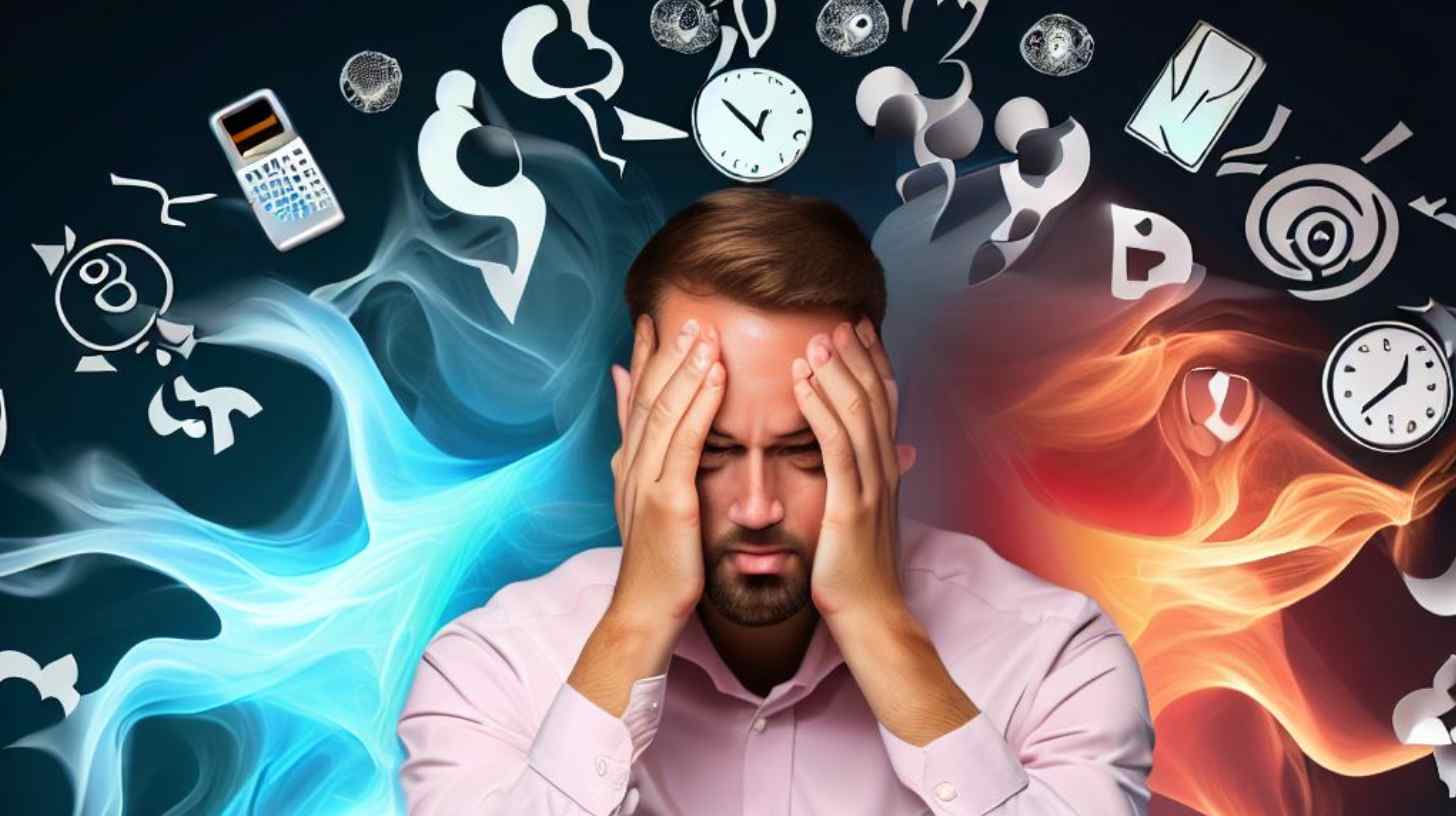Introduction to Natural Stress Management
In today’s fast-paced world, the quest to relieve stress has become more crucial than ever. With the onset of the COVID-19 pandemic, many individuals found themselves grappling with heightened levels of stress and anxiety. The body’s natural response to such challenges is the release of cortisol, a hormone that, while beneficial in short bursts, can have detrimental effects when consistently elevated. As we navigate the complexities of our modern lives, compounded by the unique challenges brought about by COVID-19, understanding how to deal with stress effectively is paramount. This article aims to provide insights into the causes, effects, and techniques for stress relief, offering readers tools and strategies to alleviate the burdens of stress and anxiety.
Table of Contents
What is Stress?
Definition
Stress, in its most basic form, is the body’s response to changes that require an adjustment or reaction. It’s a natural part of life and can be beneficial in some situations, providing the motivation and focus needed to tackle challenges head-on. However, when stress becomes chronic or overwhelming, it can have detrimental effects on our mental, emotional, and physical health.
Post-COVID-19 Perspective

The global outbreak of COVID-19 brought about unprecedented challenges, reshaping our understanding of stress in several ways:
- Pandemic-Induced Stress: The fear of contracting the virus, concerns about loved ones, and the constant influx of distressing news contributed to heightened stress levels worldwide. This new form of stress, directly linked to the pandemic, became a shared global experience.
- Social Isolation and Loneliness: Lockdowns, social distancing measures, and the shift to remote work or learning led to increased feelings of isolation and loneliness for many. The lack of physical social interactions, previously taken for granted, became a significant source of stress.
- Economic Uncertainties: Job losses, financial hardships, and the looming threat of a global recession added economic stress to the lives of countless individuals and families.
- Adapting to the “New Normal”: The post-COVID-19 world required adjustments in daily routines, from wearing masks to frequent hand sanitizing. Adapting to these changes, while understanding their importance, brought about its own set of stressors.
- Mental Health Awareness: The pandemic underscored the importance of mental health, with many people experiencing stress-related symptoms for the first time. It led to a broader societal recognition of stress and its impacts, emphasizing the need for coping mechanisms and support systems.
- Digital Fatigue: With the shift to online platforms for work, education, and social interactions, many experienced digital fatigue or “Zoom fatigue.” The constant engagement with screens and virtual environments became a new-age stressor.
In the post-COVID-19 era, understanding and addressing stress requires a holistic approach, considering the multifaceted challenges the pandemic introduced. It’s essential to recognize these new stressors and develop coping strategies tailored to our evolving world.
The Body’s Response

Stress, whether it’s a sudden unexpected event or a prolonged challenge, triggers a cascade of physiological responses in our body. This intricate system, evolved over millennia, is designed to help us react to threats and challenges effectively. However, in our modern world, where stressors can be constant and varied, understanding this response is crucial to managing its effects.
Acute Stress Response
Often referred to as the “fight or flight” response, this is the body’s immediate reaction to perceived threats.
- Release of Cortisol and Adrenaline: These hormones increase heart rate, blood pressure, and glucose levels, preparing the body for immediate action.
- Heightened Awareness: The senses become sharper, and the brain becomes more alert, ensuring quick reactions to potential threats.
- Redistribution of Energy: Blood is redirected to essential muscles, like those in the legs and arms, preparing the body to either confront or flee from the threat.
Chronic Stress Response
When stress is prolonged, the body’s response can become maladaptive, leading to potential health issues.
- Constant Cortisol Production: While cortisol is beneficial in short bursts, constant production can lead to issues like weight gain, high blood pressure, and a weakened immune system.
- Digestive Issues: Chronic stress can lead to problems like nausea, vomiting, and diarrhea. Over time, this can result in more severe conditions like irritable bowel syndrome.
- Mental Health Impact: Prolonged exposure to stress hormones can contribute to mental health issues like depression and anxiety.
- Sleep Disruptions: Chronic stress can interfere with the body’s sleep-wake cycle, leading to insomnia or other sleep disorders.
The Relaxation Response
Just as the body has a system in place to respond to stress, it also has mechanisms to counteract it, often termed the “relaxation response.”
- Decrease in Heart Rate and Blood Pressure: As the body moves out of its heightened state, heart rate and blood pressure return to baseline levels.
- Muscle Relaxation: Muscles that were tensed in preparation for action now relax, leading to a feeling of calm.
- Return to Homeostasis: The body’s systems, from hormonal levels to digestion, return to their regular, balanced state.
Understanding the body’s response to stress, from the immediate reactions to the long-term effects, is essential in our quest to deal with stress and anxiety. By recognizing these responses, we can better equip ourselves with tools and techniques to relieve stress and promote overall well-being.
Causes of Modern-Day Stress
Technological Overload

In the digital age, we’re constantly bombarded with information. Smartphones, tablets, and computers have made communication instantaneous, but with that comes the expectation of immediate responses.
- Notifications Galore: Every app, every website, every platform wants our attention, and they get it through pings, dings, and notifications. This constant barrage can make it difficult to focus on tasks or even relax.
- Screen Time: Extended screen time, especially before bedtime, can disrupt sleep patterns. A lack of restful sleep can, in turn, contribute to increased stress levels.
- Information Overwhelm: With the internet at our fingertips, we have access to vast amounts of information. While this can be beneficial, it can also be overwhelming, leading to decision fatigue and analysis paralysis.
Work-Life Imbalance

The modern work culture, especially in certain industries, demands long hours and high levels of dedication. This can blur the lines between professional and personal life.
- Remote Work Challenges: While working from home offers flexibility, it also brings challenges like distractions, lack of a structured work environment, and the feeling of always being “on the job.”
- High Expectations: The pressure to perform, meet targets, and outdo competitors can be immense. This drive for constant productivity can lead to burnout.
- Lack of Downtime: With the merging of work and personal spaces, especially in remote work scenarios, there’s often no real “switching off.” The brain is always engaged, leading to mental fatigue.
Social Pressures

The rise of social media has given birth to a new set of challenges. While it offers connectivity, it also presents a curated view of people’s lives, leading to comparison and discontent.
- The Comparison Trap: Scrolling through social media, it’s easy to fall into the trap of comparing our lives with others. This can lead to feelings of inadequacy and stress.
- Fear of Missing Out (FOMO): Seeing others participate in events, trips, or experiences can lead to FOMO, a pervasive apprehension that others might be having rewarding experiences from which one is absent.
- Online Trolling and Bullying: The anonymity of the internet can sometimes bring out the worst in people. Negative comments, trolling, and online bullying can have severe emotional impacts.
Economic Pressures

The modern world comes with its set of financial challenges. From rising living costs to student loans, economic pressures are a significant source of stress for many.
- Job Security: In a rapidly changing job market, concerns about job security, layoffs, and financial stability can be constant stressors.
- Debt and Expenses: Credit card debts, mortgages, and other loans can weigh heavily on the mind, leading to constant worry and anxiety.
- Future Uncertainties: Concerns about retirement, savings, and future financial stability can be a constant source of stress, especially in uncertain economic times.
Effects of Chronic Stress
Physical Health
Chronic stress doesn’t just weigh on the mind; it takes a toll on the body as well. Over time, prolonged stress can lead to a range of health issues.
- Immune System Suppression: Stress can weaken the immune system, making the body more susceptible to infections. You might find yourself catching colds or other illnesses more frequently.
- Digestive Issues: Stress can disrupt the digestive system, leading to problems like indigestion, acid reflux, and even irritable bowel syndrome (IBS).
- Heart Problems: Chronic stress increases the risk of high blood pressure, heart attacks, and other cardiovascular issues. The constant release of stress hormones can elevate heart rate and blood pressure, putting additional strain on the heart.
- Weight Gain: Stress can lead to overeating or unhealthy eating habits, resulting in weight gain. Additionally, stress hormones can affect metabolism, leading to fat storage.
Mental Health
The mind is the primary battleground for stress, and the scars can run deep.
- Anxiety and Depression: Prolonged stress can lead to anxiety disorders and depression. The constant state of worry and unease can affect mood, leading to feelings of hopelessness and sadness.
- Cognitive Impairments: Chronic stress can affect memory and concentration. Over time, you might find it challenging to focus on tasks or recall information.
- Mood Swings: Stress can lead to irritability, anger, and mood swings. Small annoyances might trigger disproportionate reactions.
- Sleep Disturbances: Stress often leads to insomnia or disrupted sleep patterns. Lack of restful sleep can further exacerbate stress, creating a vicious cycle.
Relationships
Chronic stress doesn’t stay contained within an individual; it spills over, affecting interpersonal relationships.
- Decreased Patience: When under stress, one’s patience threshold decreases. This can lead to conflicts over minor issues with partners, family, or friends.
- Withdrawal: Some people tend to withdraw from social interactions when stressed, leading to feelings of isolation and furthering the gap in relationships.
- Decreased Intimacy: Chronic stress can affect intimacy and sexual relationships. The mental and physical toll of stress can lead to decreased libido and strain in romantic relationships.
- Parenting Challenges: Parents under chronic stress might find it challenging to engage with their children effectively. This can affect the parent-child bond and potentially lead to behavioral issues in children.
Behavioral Changes
Chronic stress can also manifest in various behavioral changes.
- Substance Abuse: Some individuals might turn to alcohol, drugs, or smoking as a way to cope with stress, leading to substance abuse issues.
- Neglecting Responsibilities: Overwhelm from stress can lead to procrastination or neglect of personal and professional responsibilities.
- Changes in Appetite: Stress can lead to either overeating or loss of appetite. Some might indulge in comfort foods, while others might skip meals.
Natural Stress Management Techniques to Reduce Stress

Mindfulness and Meditation
In the midst of chaos, finding a moment of stillness can be transformative. Mindfulness and meditation offer a sanctuary for the mind.
- Deep Breathing: Taking deep, controlled breaths can activate the body’s relaxation response. It helps in lowering the heart rate and calming the mind.
- Guided Imagery: This involves visualizing a peaceful setting or scenario. The mind’s ability to transport you to a serene beach or a quiet forest can be a potent stress-reliever.
- Body Scan Meditation: This involves focusing on different parts of the body, recognizing tension, and consciously relaxing those areas. It promotes awareness and relaxation.
Herbal Remedies

Nature has provided us with a plethora of herbs that can help soothe the mind and body.
- Chamomile: Known for its calming properties, chamomile tea can help relax the nerves and muscles.
- Lavender: The scent of lavender is often used in aromatherapy for its relaxation effects. Whether in oils, lotions, or sachets, lavender can help reduce anxiety and promote sleep.
- Ashwagandha: An ancient herb, ashwagandha is known for its adaptogenic properties, helping the body adapt to stress. It can be found in various supplements and teas.
- Valerian Root: Often used as a natural sleep aid, valerian root can help calm the mind and promote restful sleep.
Exercise and Physical Activity
Movement is medicine. Engaging in physical activity can be one of the most effective ways to manage stress.
- Cardiovascular Activities: Running, cycling, or even brisk walking can help release endorphins, the body’s natural painkillers and mood elevators.
- Yoga: More than just physical postures, yoga incorporates breath control and meditation. It can help improve flexibility, strength, and mental clarity.
- Tai Chi: Often described as “meditation in motion,” Tai Chi is a series of slow, flowing movements that can help reduce stress and improve balance and flexibility.
- Dancing: Whether it’s structured dance forms or just freestyling to your favorite tunes, dancing can be a joyful way to reduce stress.
Nature and Outdoor Activities
Connecting with nature can have a therapeutic effect on the mind.
- Gardening: The act of planting, nurturing, and watching something grow can be incredibly satisfying and grounding.
- Hiking: Exploring nature trails and hiking can offer both physical exercise and a mental break from the daily grind.
- Bird Watching: This peaceful activity requires patience and focus, taking your mind off stressors and allowing you to connect with nature.
- Beach Walks: The sound of waves, the feel of sand beneath the feet, and the vastness of the ocean can have a calming effect on the mind.
Art and Creativity
Engaging in creative activities can be a form of expression and release.
- Painting and Drawing: Expressing oneself through colors and shapes can be therapeutic. It’s not about the end product but the process.
- Journaling: Writing down thoughts, feelings, and experiences can offer clarity and a sense of relief.
- Crafting: Activities like knitting, pottery, or DIY projects can be both engaging and relaxing.
- Music: Whether it’s playing an instrument, singing, or just listening to your favorite tracks, music can elevate mood and reduce stress.
Sleep Hygiene

The term “sleep hygiene” refers to a set of habits and practices that are conducive to sleeping well on a regular basis. Proper sleep hygiene can significantly reduce stress and improve overall well-being.
- Consistent Sleep Schedule: Going to bed and waking up at the same time every day, even on weekends, helps regulate the body’s internal clock. This consistency can improve the quality of sleep.
- Optimal Sleep Environment: The bedroom should be a sanctuary for sleep. This means a comfortable mattress and pillows, darkness (using blackout curtains or eye masks), and a cool room temperature. Reducing noise with earplugs or white noise machines can also be beneficial.
- Limiting Screen Time: The blue light emitted by phones, tablets, and computers can interfere with the production of melatonin, a hormone that regulates sleep. It’s advisable to avoid screens at least an hour before bedtime.
- Mindful Eating and Drinking: Avoiding large meals, caffeine, and alcohol before bedtime can improve sleep quality. While alcohol might make you feel sleepy initially, it can disrupt the sleep cycle later in the night.
- Relaxation Techniques: Incorporating relaxation techniques like deep breathing exercises, progressive muscle relaxation, or listening to calming music can prepare the body for sleep.
- Limiting Naps: While short power naps can be rejuvenating, long or irregular napping during the day can negatively affect nighttime sleep.
- Physical Activity: Regular physical activity can help regulate sleep patterns. However, it’s essential not to exercise too close to bedtime, as it might have the opposite effect.
- Mindful Consumption: It’s essential to be aware of food and drink that can interfere with sleep. For instance, consuming caffeine or nicotine close to bedtime can disrupt sleep patterns.
The connection between sleep and stress is bidirectional. Chronic stress can lead to sleep disturbances, and lack of sleep can increase stress levels. Prioritizing sleep hygiene not only ensures restful nights but also plays a pivotal role in managing and reducing stress.
The Importance of Seeking Help
Recognizing Overwhelming Stress
While stress is a natural part of life, there are times when it becomes too much to handle alone. Recognizing the signs of overwhelming stress is the first step towards seeking help.
- Persistent Feelings of Sadness or Hopelessness: If you find yourself constantly feeling down, and these feelings persist for weeks, it’s a sign that you might need professional assistance.
- Physical Symptoms: Chronic headaches, stomach issues, or other unexplained physical symptoms can be indicators of excessive stress.
- Changes in Behavior: Drastic changes in appetite, sleep patterns, or a sudden disinterest in activities you once enjoyed can be red flags.
- Inability to Carry Out Daily Tasks: If stress is hindering your ability to work, study, or manage household tasks, it’s time to seek help.
Support Systems
Having a strong support system can make a world of difference. However, it’s essential to understand the different layers of support available.
- Friends and Family: Sometimes, just talking to someone you trust can help. They might offer a fresh perspective, provide comfort, or even just lend a listening ear.
- Support Groups: Joining a support group, where members share similar experiences and feelings, can be therapeutic. It provides a safe space to share feelings and learn from others.
- Professional Help: There are times when professional intervention becomes necessary. This could be in the form of therapy, counseling, or even medication.
Therapies and Counseling
Various therapeutic approaches can help manage and reduce stress.
- Cognitive Behavioral Therapy (CBT): This form of therapy helps identify and change negative thought patterns and behaviors that contribute to stress.
- Mindfulness-Based Stress Reduction (MBSR): A structured program that combines mindfulness and yoga to reduce stress and improve psychological well-being.
- Talk Therapy: Simply talking about your feelings and concerns with a therapist can provide relief and offer solutions.
Medication
While natural remedies and therapies are beneficial, there are instances where medication might be recommended to manage stress, especially if it’s leading to anxiety or depression. It’s essential to consult with a healthcare professional to understand the best options.
Online Resources and Helplines
In today’s digital age, seeking help has become more accessible than ever. Whether you’re in need of immediate crisis intervention or long-term counseling, there are platforms available to assist you. Here are some reputable online platforms and helplines that offer counseling services and immediate assistance:
- BetterHelp
- Description: BetterHelp is one of the world’s largest online therapy platforms. It offers affordable and convenient online therapy from licensed, professional therapists. The platform provides a range of services, including messaging, chat, phone, and video sessions. Users can communicate with therapists in a manner that suits them best, ensuring flexibility and comfort.
- Services Offered: Individual therapy, couples therapy, teen therapy, and more.
- Talkspace
- Description: Talkspace provides online therapy with licensed therapists and has served over a million users. The platform allows users to communicate with their therapists through live sessions, messaging, or both. It offers therapy for individuals, couples, and teens, as well as psychiatric services.
- Services Offered: Individual therapy, couples therapy, teen therapy, and psychiatry.
- Crisis Text Line
- Description: Crisis Text Line offers free, 24/7 support via text message. It’s designed for those in crisis and provides immediate assistance from trained Crisis Counselors. By texting “HOME” to 741741, individuals can connect with a counselor who will help them navigate their crisis and find a calm resolution.
- Services Offered: Text-based crisis intervention.
It’s essential to remember that while online platforms can offer valuable support, they might not replace face-to-face therapy in every situation. Always consult with a healthcare professional about the best options for your individual needs. If you or someone you know is in immediate danger, please seek emergency services in your area.
Conclusion
In the fast-paced world of today, stress has become an inevitable companion for many. From the relentless demands of technology to the pressures of maintaining a work-life balance, modern-day stressors are multifaceted and ever-present. While some stress can act as a motivator, pushing us to achieve our goals, chronic stress can have detrimental effects on both our physical and mental well-being.
Understanding the causes of stress, recognizing its effects, and being proactive in managing it are crucial steps in maintaining overall health. Natural stress management techniques, such as mindfulness, exercise, and sleep hygiene, offer holistic approaches to combat stress. They emphasize the importance of tuning into our bodies, connecting with nature, and seeking solace in the simple joys of life.
However, it’s essential to remember that everyone’s journey with stress is unique. What works for one person might not work for another. It’s about finding what resonates with you, whether it’s a calming cup of chamomile tea, a rejuvenating yoga session, or a heart-to-heart with a trusted friend.
Moreover, seeking help, whether from loved ones or professionals, is not a sign of weakness but rather an act of strength. It signifies the recognition of one’s limits and the courage to reach out for support.
In conclusion, while modern-day stress might be a constant presence, it doesn’t have to define our lives. With awareness, proactive measures, and the right support, we can navigate the turbulent waters of stress and find our way to a calm and balanced state of mind.
Frequently Asked Questions (FAQs)
What is the difference between acute and chronic stress?
Acute stress is short-term and can be beneficial in some situations, while chronic stress is long-term and can have detrimental effects on health.
Can stress be beneficial?
Yes, in small doses, stress can boost productivity and improve alertness.
How does meditation help reduce stress?
Meditation helps calm the mind, improve focus, and increase self-awareness, all of which can reduce feelings of stress.
Are there foods that can help reduce stress?
Yes, foods rich in omega-3 fatty acids, magnesium, and antioxidants can help combat stress.
How much exercise is recommended to combat stress?
It’s recommended to get at least 150 minutes of moderate-intensity exercise or 75 minutes of vigorous-intensity exercise per week.
Reputable Resources on Stress Management:
- Harvard Health: Best ways to manage stress
- This article from Harvard Health discusses the physical and emotional effects of stress, especially as we age. It explains the stress response and its impact on the body. The article also provides insights into recognizing stress and offers ways to manage it, including relaxation techniques and cognitive behavioral therapy.
- Mayo Clinic: Stress management Resources
- Mayo Clinic provides a brief overview of stress, emphasizing that while a small amount of stress can be motivating, daily challenges can push individuals beyond their coping abilities.
- American Heart Association: Stress Management
- The American Heart Association offers resources on stress management, emphasizing the importance of understanding and managing stress for heart health.




